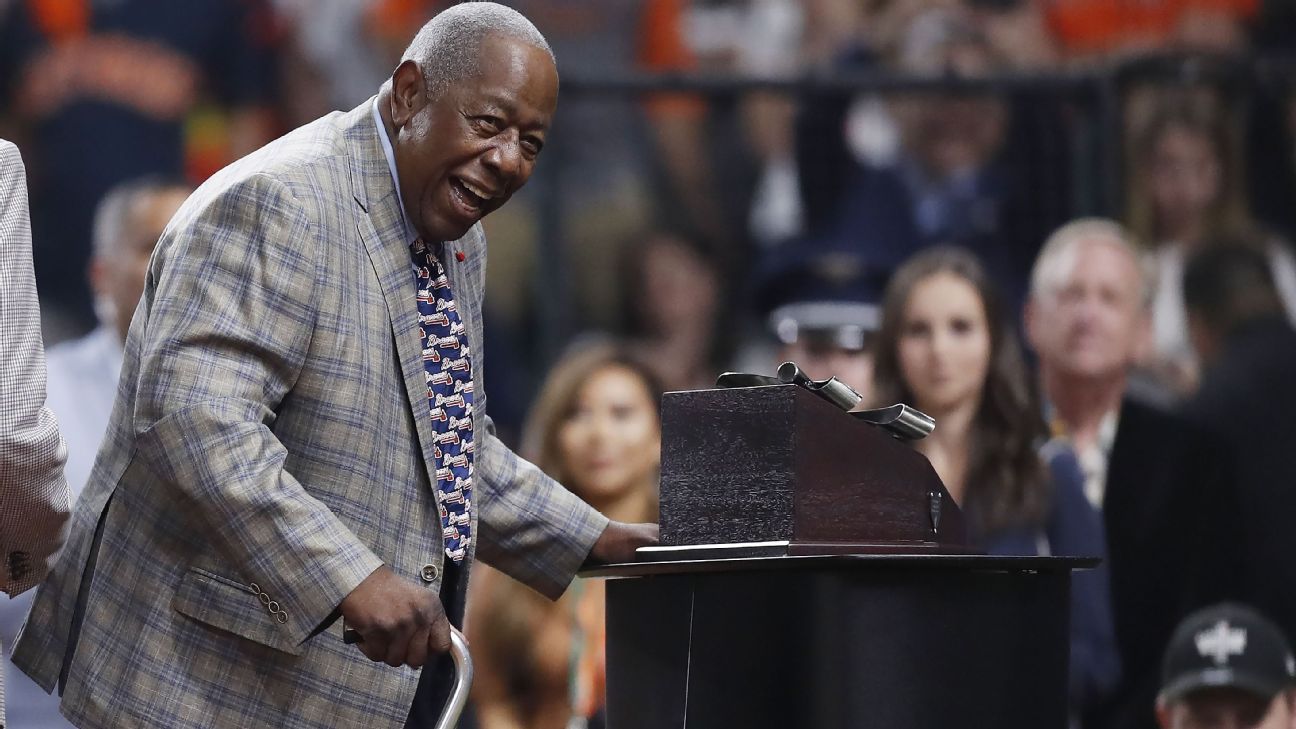ATLANTA — Baseball Hall of Famer Hank Aaron, former U.N. Ambassador and civil rights leader Andrew Young and former U.S. Health and Human Services Secretary Louis Sullivan got vaccinated against COVID-19 in Georgia on Tuesday, hoping to send a message to Black Americans that the shots are safe.
Getting vaccinated “makes me feel wonderful,” Aaron told The Associated Press. “I don’t have any qualms about it at all, you know. I feel quite proud of myself for doing something like this. … It’s just a small thing that can help zillions of people in this country.”
Rolling up their sleeves to take the first of two doses, these octogenarians, their spouses and several other civil rights leaders who received the shots in a brand-new health clinic at the Morehouse School of Medicine acknowledged the legacy of mistrust that many African Americans have toward medical research, stemming from the infamous Tuskegee experiment in which U.S. health workers left syphilis untreated in Black men without their consent, making them suffer needlessly.
“I’ve been taking vaccines now for 88 years and I haven’t been sick,” Young said. “The truth of it is, Black folk have been living by shots, and just because they did something crazy and murderous and evil back in 1931, we’re still thinking about that. We’ve got to get over that.”
The disinformation is difficult to overcome: A December survey by The Associated Press-NORC Center for Public Affairs Research showed 40% of Black people said they would not get the coronavirus vaccine. Such hesitancy is more entrenched than among white people, even though Black Americans have been hit harder by the virus.
Young said he recruited Aaron and his wife, Billye Suber Aaron, to get their shots with him and Sullivan, who founded the medical school a half-century ago and later joined the Cabinet of President George H.W. Bush. The Aarons, for their part, have given more money to the medical school than the slugger made in his last five years of playing baseball, Young observed.
Young praised the new clinic, saying it will make medicine “more relevant and more safe and more available to poor folks of color.”
“I think that’s what we need all across the state of Georgia and the South,” he said.
